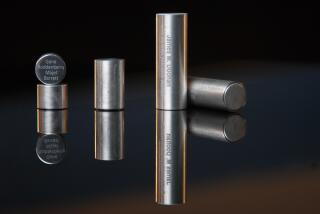NASA to conduct the first-ever twin study in space
- Share via
What happens to our DNA, RNA and proteins if we spend a long time in space? A pair of 50-year-old twins will help NASA find out.
Identical twins Mark and Scott Kelly have signed up to be part of the first-ever twin study that takes place, at least partially, in space.
In March 2015, veteran astronaut Scott Kelly will begin a one-year stint living aboard the International Space Station. It will be the longest amount of consecutive time that any American astronaut has spent in space.
His brother Mark Kelly, who is married to former Arizona Rep. Gabrielle Giffords, will stay on Earth and serve as a control in the study. Although he has also spent time in space as an astronaut, he has since retired from that role.
“We realized this is a unique opportunity to perform a class of novel studies because we had one twin flying aboard the International Space Station and one twin on the ground,” said Craig Kundrot, deputy chief scientist of NASA’s Human Research Program, in a statement. “We can study two individuals who have the same genetics, but are in different environments for one year.”
NASA announced Friday that its Human Research Program will fund 10 short-term studies that compares the physiology of the two brothers to help the agency better understand and prepare for the health impacts of living in space for an extended time.
This would be especially important in preparing for a manned mission to Mars which would likely take about three years of space time, and subject astronauts to unprecedented amounts of radiation from space.
The studies will look for differences in the twins on the molecular level, in the bacteria that live in their gut, in their overall physical bodies, and also in their behavioral thinking. For example, they will test if Scott Kelly continues to be as alert as his brother after a full year in space.
The space agency said in a release that these twin studies will not provide definitive data about the how spaceflight effects humans -- the study sample is too small. But it might help researchers figure out what to focus on in larger studies in the future.
Are you a science lover? Follow me on Twitter for more like this.







